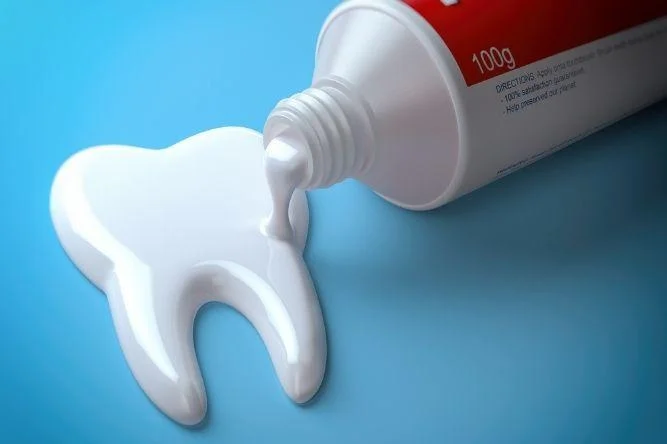Your teeth are more complex than they appear at first glance. They’re made up of many layers, all designed to protect your teeth and keep them healthy. But what happens when the outermost layer (the enamel) wears away?
Before we dive in, let’s clarify what tooth enamel is. It’s the hard outer layer of your tooth that protects against harmful bacteria and the chewing forces of your jaws. Enamel is made of calcium phosphate (which explains why calcium is good for your teeth!).
But when acids, sugars, and plaque attack your teeth, that enamel can wear away. What can you do to protect it and keep your smile strong? Take note of our tips for preserving your enamel:
Why Is Tooth Enamel So Important?
Tooth enamel helps protect the soft inner tissue of your teeth, including the nerves, connective tissue, and blood vessels. As enamel wears away, it exposes the dentin underneath. This gives the tooth a more yellow appearance and leaves the sensitive nerves of your teeth vulnerable to harmful bacteria.
Tooth enamel does not regenerate; once it wears away, it’s gone for good. You can’t rebuild tooth enamel because it’s not made of living tissue. Your best bet is to protect tooth enamel so that it doesn’t get damaged in the first place.
Signs of Tooth Enamel Erosion
Pay attention to the following symptoms, which may indicate that you’re dealing with enamel loss:
- Increased tooth sensitivity. It shouldn’t hurt to drink hot tea or bite into cold potato salad. If it does, you may be suffering from a loss of enamel.
- Yellow teeth. Enamel is naturally white, but the layer of dentin beneath it is yellow. As the enamel wears away and more dentin is exposed, you may notice changes in the colour of your smile.
- Weaker teeth. Do you frequently develop cavities? Are your teeth prone to chipping and cracking? Without enamel, your teeth are much more susceptible to bacteria and impact damage.
Tips for Protecting Tooth Enamel
You know how vital your enamel is—what can you do to preserve it and prevent tooth enamel erosion? Take note of these tips for protecting enamel and avoiding tooth decay:
1) Avoid sugary or acidic foods and drinks
A healthy smile starts with a healthy diet. Even if you’ve got an excellent oral care routine, your oral health can still be damaged by acidic drinks and sugary foods.
We all enjoy sugary treats, but it’s important to eat them in moderation. The foods we eat have a significant impact on our overall dental health. So, which foods should you cut out, and which should you eat more of? Here’s a quick rundown:
Let’s start by talking about foods to avoid – some acidic foods to steer clear of include processed meats, citrus fruits, and white bread. Stay away from sugary foods like hard candies, which can chip your teeth.
Try to avoid sports drinks and soft drinks (sodas); both contain high levels of sugar and acid. Limit your alcohol intake—it’s bad for your teeth and your liver.
When you drink acidic drinks, use a straw. This ensures that the liquid goes past your front teeth, which helps to acid erosion and enamel loss. After you drink beverages that are acidic, swish your mouth with water; this helps remove lingering acid and prevent dry mouth.
2) Brush your teeth with a soft-bristled toothbrush
You’ve been told to brush your teeth twice a day. Did you know that it’s also important to monitor how you brush your teeth? If you brush too hard, you can end up damaging delicate gum tissues. Instead, use gentle strokes to remove plaque. Always use a soft toothbrush, which will be more gentle on your enamel.
3) Use products with fluoride
As we mentioned earlier, we can’t regenerate tooth enamel. But we can remineralize it by using fluoride. This helps strengthen tooth enamel by making your teeth more resistant to acidic foods and drinks.
In Winnipeg, our tap water contains fluoride, which is added in measured doses and continually monitored. Studies show that adding fluoride to drinking water offers positive dental health benefits. Drinking tap water is a great way to get a regular dose of fluoride.
But what if you don’t drink tap water? You can also use fluoride by trying the following:
- Use fluoridated toothpaste. You only need a small amount of this product to enjoy its enamel-strengthening benefits.
- Rinse with fluoridated mouthwash. Once you’re done brushing and flossing, rinse your mouth with a mouthwash that contains fluoride. Be careful not to eat or drink for at least 30 minutes after using it.
4) See your dentist regularly
Whenever you have a toothache, an overdue cleaning, or a dental emergency, you know to call your dentist. But what if you’re worried about enamel loss?
By scheduling regular dental visits, you can better protect your teeth against dental erosion. We offer several fluoride treatments that can strengthen your smile. At our dental office, you can have a fluoride varnish applied directly to your teeth. This offers long-lasting protection against acidic foods and drinks.
Do You Need Dental Work?
You want your teeth to last a lifetime. That’s why it’s so important to protect vulnerable teeth against dental erosion. Once enamel is lost, there’s no way to grow it back.
Our dentists at Affinity Dental are here to help. We can talk to you about how to reduce erosion of your enamel and detect signs of tooth decay. With our help, you can enjoy a lifetime of strong, bright teeth.
At our Winnipeg dental office, your oral health is important to us. With our high-quality dental services, you can protect your teeth, prevent tooth sensitivity, and address issues like gum disease or cavities. We offer a range of dental services, including dental implants and wisdom teeth extractions.
Ready to make your appointment? Contact Affinity Dental today!
